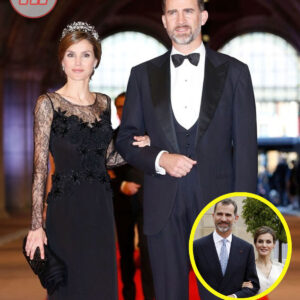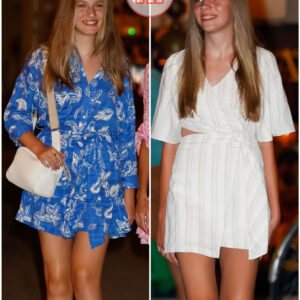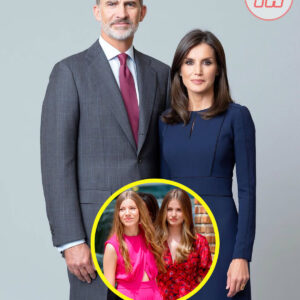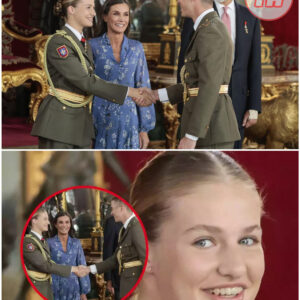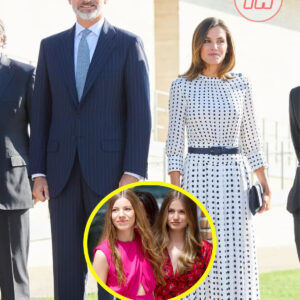Controversial Holidays of Letizia and Felipe, and Leonor’s Private Trip Following Stay in Mallorca
In the realm where Spanish royalty intersects with public scrutiny, recent developments have sparked controversy and speculation surrounding Queen Letizia, King Felipe VI, and their daughters, Princess Leonor and Infanta Sofía. Reports circulating in various media outlets have highlighted the dynamics of their recent holidays, shedding light on public perceptions, royal protocols, and the intricacies of balancing personal privacy with public expectations within the Spanish monarchy.
Queen Letizia and King Felipe VI of Spain are prominent figures within the Spanish royal family, representing continuity and tradition amidst evolving societal expectations. Their roles encompass ceremonial duties, diplomatic engagements, and public appearances that shape perceptions of royalty as cultural symbols and national figures.
The couple’s relationship and public engagements are subject to intense media scrutiny, reflecting broader societal interests in tradition, lineage, and the representation of monarchy in contemporary Spain. As public figures, their actions and decisions are scrutinized through the lens of public interest and national identity.
Recent reports have drawn attention to Queen Letizia and King Felipe VI’s controversial holidays, prompting discussions about their choice of destinations, activities, and the implications for their public image. Speculation and criticism have arisen regarding the perceived extravagance, privacy concerns, and the contrast between royal duties and personal leisure.
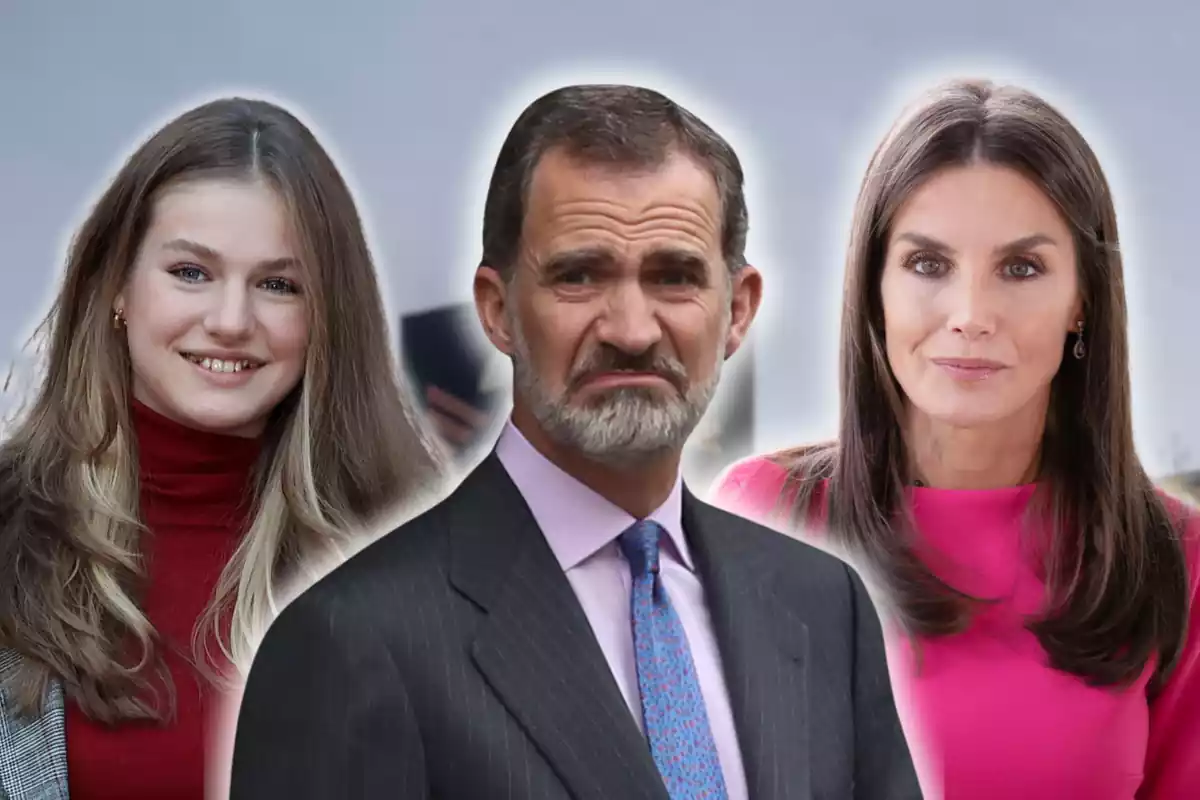
The scrutiny of their holidays underscores the challenges of balancing personal privacy with public transparency within the framework of royal protocols. The public’s interest in their private lives reflects broader societal expectations of accountability, ethical conduct, and the representation of royal figures as cultural ambassadors.
Princess Leonor, as the heir presumptive to the Spanish throne, holds a pivotal role within the Spanish royal family. Born on October 31, 2005, she embodies grace, poise, and a sense of duty reflective of her upbringing as a future monarch-in-waiting. Her education, public engagements, and personal milestones are scrutinized as indicators of her preparedness and commitment to future leadership.
Reports have emerged regarding Princess Leonor’s private trip following her family’s stay in Mallorca, raising curiosity about the nature, purpose, and implications of her personal journey. Speculation about the destination, duration, and significance of the trip has sparked discussions about privacy, independence, and the transition from childhood to future royal responsibilities.
The public’s interest in Princess Leonor’s personal life reflects broader societal fascination with royal upbringing, succession planning, and the representation of monarchy as a symbol of continuity and national unity. Her private trip serves as a testament to her evolving role within the Spanish royal family and her journey towards assuming future leadership responsibilities.
In an era characterized by digital media and instantaneous communication, the coverage of Queen Letizia, King Felipe VI, and their daughters exemplifies the intersection of traditional royal protocols with the dynamics of contemporary media culture. The dissemination of reports, speculation, and criticisms through online platforms underscores the influence of social media in shaping public discourse and perceptions of royalty.

The role of tabloid journalism and social media influencers in perpetuating controversies about royal holidays and personal trips reflects broader trends in media consumption and the commodification of royal narratives. The ongoing interest in their public and private lives highlights the enduring fascination with royalty as a subject of cultural intrigue and national identity.
As discussions surrounding Queen Letizia, King Felipe VI, and their daughters continue to evolve, attention turns to reflections on the boundaries between public interest and personal privacy within the context of royalty. Their roles as cultural ambassadors and national figures necessitate careful consideration of the impact of media scrutiny on their personal lives and public perception.
In conclusion, the controversies surrounding Queen Letizia, King Felipe VI, and their daughters’ recent holidays underscore the complexities of navigating public and private life within the Spanish monarchy.
Beyond the headlines lie deeper narratives about tradition, modernity, and the evolving expectations of royalty in contemporary Spain. As discussions progress, the legacy of their actions and decisions will shape perceptions of monarchy as an enduring institution and symbol of national identity.
News
El coste de la monarquía española: Los reyes Letizia ganan una enorme cantidad de dinero cada año
La Zarzuela aplicó una subida del 3% respecto al presupuesto del 2022, tanto a las retribuciones de los Reyes como las del resto de funcionarios. El costo de la monarquía española: el Rey cobró más 250.000 euros y la reina…
La infanta Sofía y Leonor desencadenan un problema de celos que parte a Zarzuela en dos
No todos ven bien en Zarzuela que Leonor y Sofía hayan adquirido un fuerte protagonismo En los últimos meses, la familia real española ha sido escenario de un conflicto que ha sacudido las bases de Zarzuela. La revelación explosiva hecha por Jaime del Burgo ha intensificado la…
En qué se gasta el dinero la Familia Real: 4,1 millones en personal, 550.000 en teléfono y 60.000 en libros y prensa
Uno de los temas que más polémica genera en la política española es la cuestión monárquica. No solo por los escándalos asociados a la institución, sino también por el dinero que reciben anualmente. Como dispone el artículo 65.1 de la Constitución,…
CONOCE AL CADETE QUE CASI BESA A LA PRINCESA LEONOR
Conoce al Cadete que Casi Besa a la Princesa Leonor: Un Incidente que Conmocionó a España Recientemente, España ha sido testigo de un incidente que ha capturado la atención de medios y público por igual: un cadete de la Academia…
La princesa Leonor se une a Sofía para la foto ‘Pero por orden de la reina Letizia’
La Princesa Leonor se Une a Sofía para la Foto: “Pero por Orden de la Reina Letizia” La fotografía de la Princesa Leonor y la Infanta Sofía, capturada recientemente en un evento oficial, ha generado una avalancha de especulaciones y…
El ultra lujoso estilo de vida de la Princesa Leonor de España
El Ultra Lujoso Estilo de Vida de la Princesa Leonor de España: Un Vistazo a la Vida de la Heredera La Princesa Leonor de Asturias, hija mayor del Rey Felipe VI y la Reina Letizia, no solo es la heredera…
End of content
No more pages to load
